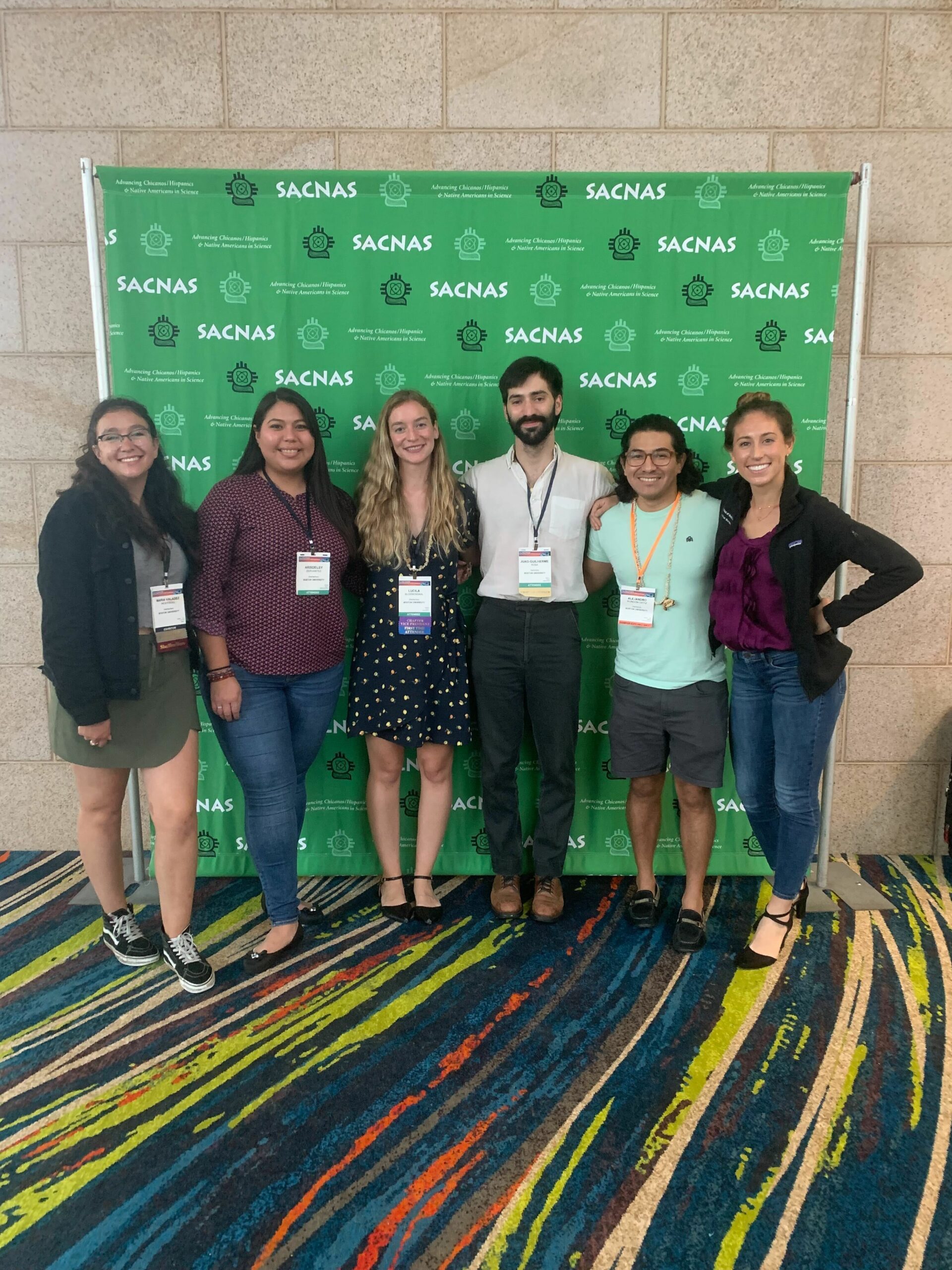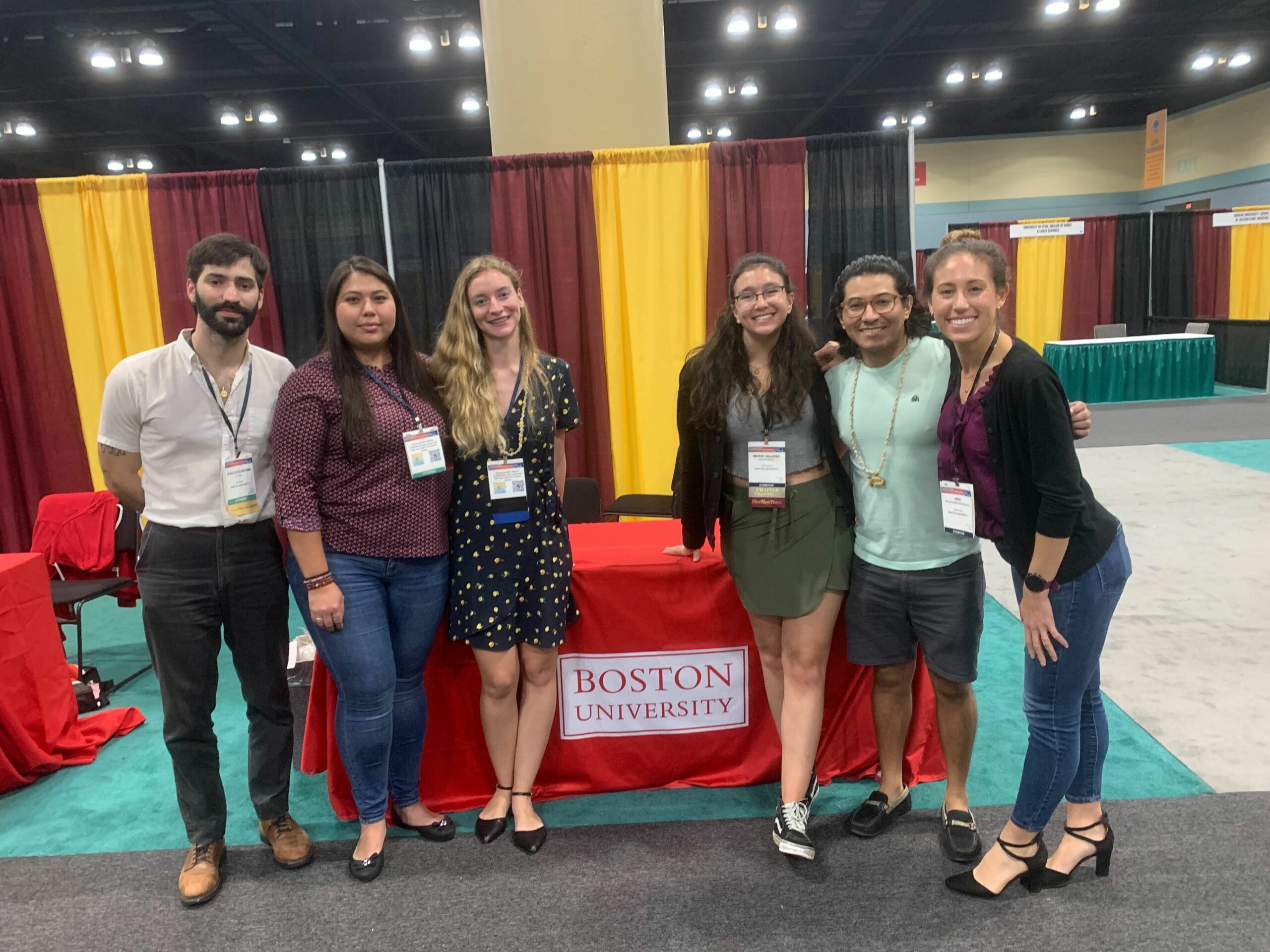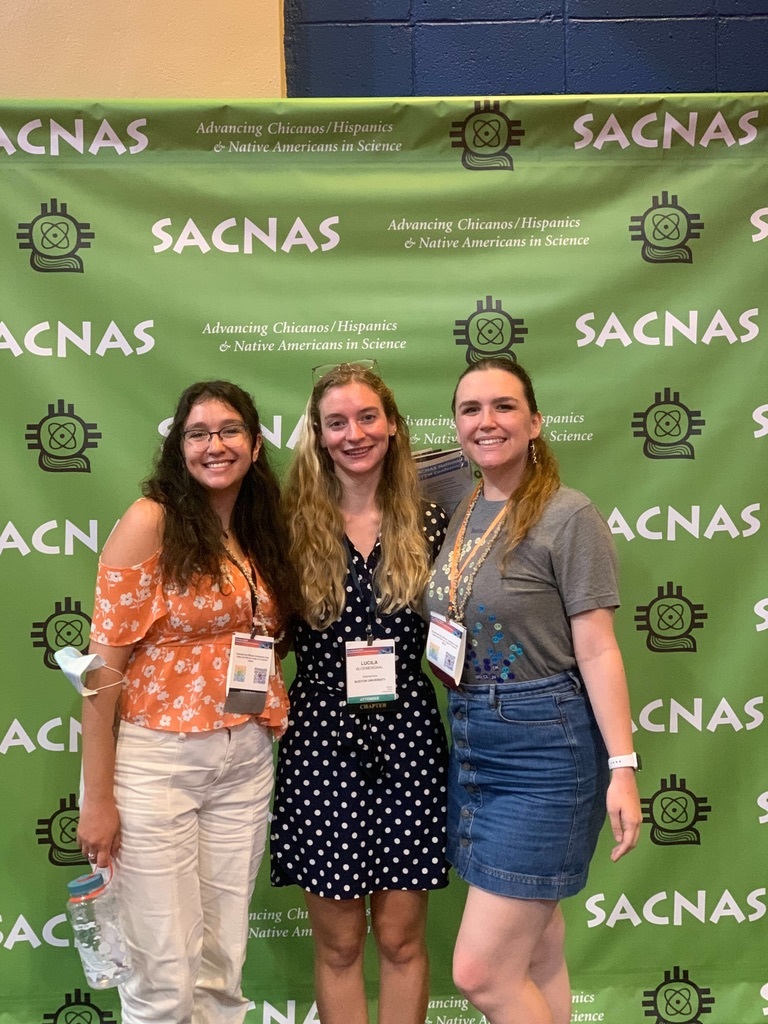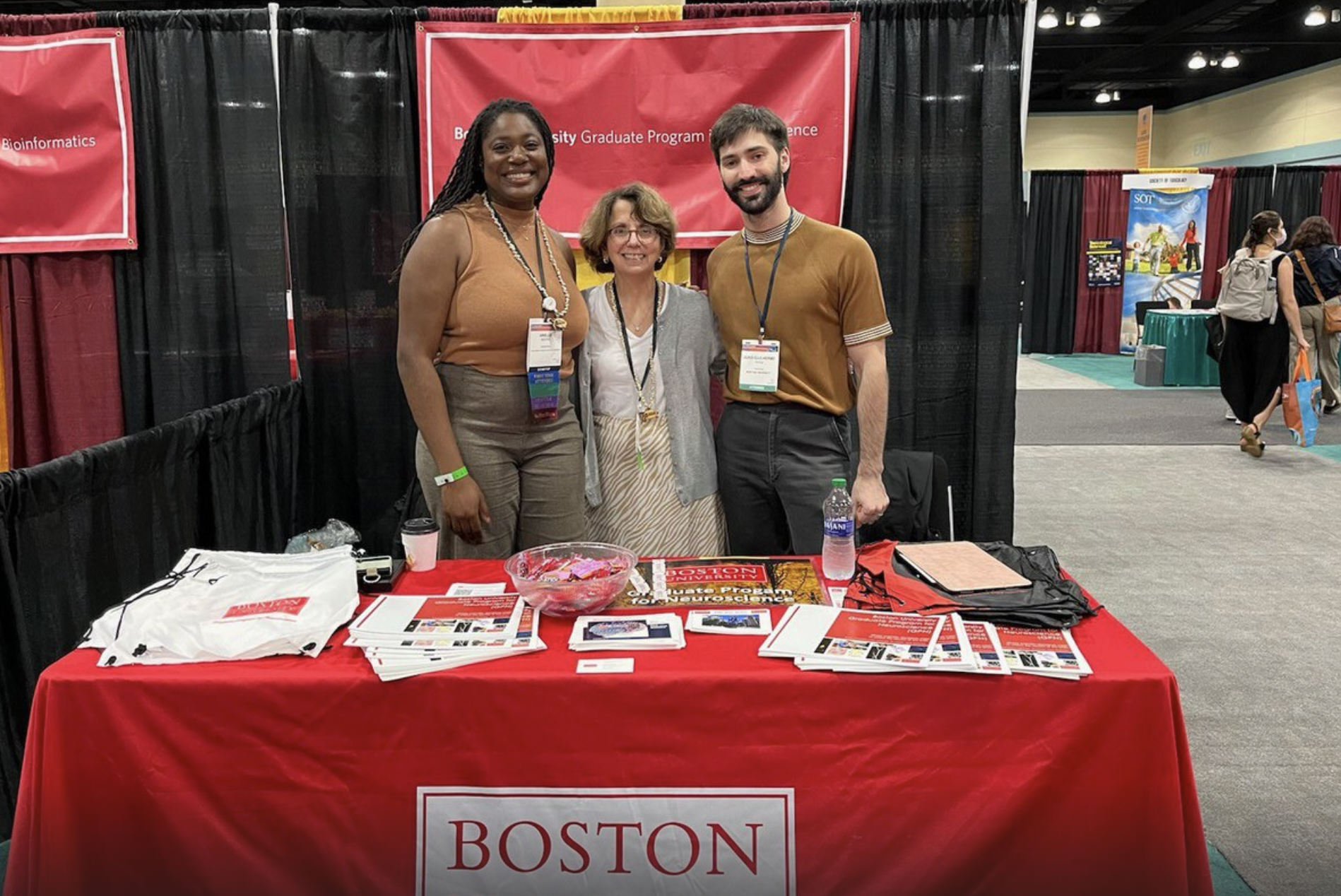URBAN Trainees Draw Inspiration and Share their Passion for Advancing and Supporting Diversity in STEM by Attending the 2022 SACNAS NDiSTEM Conference
From October 27th to 29th, URBAN Trainees Katie Atherton, Maria Ingersoll, and Lucila Bloemendaal represented Boston University and the URBAN Program at the 2022 SACNAS National Diversity in STEM (NDiSTEM) Conference held in San Juan, Puerto Rico.
We recently sat down with Katie, Maria and Lucila to discuss their experience at the conference. Keep reading to see what they said and check out the photos below!
Could you briefly explain the SACNAS National Diversity In STEM Conference? What are the goals of the conference?
Lucila: The SACNAS National Diversity in STEM (NDiSTEM) conference is an annual multidisciplinary and multicultural conference hosted by SACNAS (The Society for the Advancement of Chicanos/Hispanics and Native Americans in Science). It is the largest conference of its kind in the country, and the goal is to “equip, empower, and energize” participants pursuing academic or professional careers in STEM. Participants range from undergraduates, graduate students, and professionals and each workshop, session, and speaker event emphasizes attendees’ professional development and celebrates multiculturalism and inclusivity.
What was the most memorable part of attending the conference?
Maria: The most memorable part of the conference wasn’t just one event but rather the energy of the attendees. It was energizing to be surrounded by so many excited scientists from diverse backgrounds who were passionate about representing their whole identities and challenging themselves to take the next step in their careers.
Lucila: This was my first in-person SACNAS event, and I was in awe by the sheer size and energy of the conference. Every event was geared towards the development and success of participants at every academic and career stage, and all the exhibitors and session leads were completely invested in helping build this supportive community. While I took away so much from the workshops and sessions I attended, the most memorable part for me was while working at the BU booth. An attendee passed by with her young son and we had a conversation about her path from being a postdoc to starting up her own company, as well as raising the next generation by fostering curiosity in science, people, and beyond. Though there are certainly challenges in raising the next generation in what seems like a chaotic world at times, I was really inspired by her son’s enthusiasm and joy for learning, and how from a young age he is exposed to these wonderfully supportive and multicultural communities of scientists. To me, that was what the conference was all about—bridging disciplines, generations, and backgrounds to create an inclusive community focused on the professional and personal growth of every individual there as well as the growth of the group as a whole.
What is one significant thing you took away/learned from the conference related to diversity in STEM?
Maria: The members of the SACNAS at BU Executive Board and I met with Adán Colón-Carmona, the faculty advisor for the UMass Boston SACNAS Chapter. Adán was so encouraging of our endeavor to begin our own SACNAS chapter at BU. I think the best advice he gave us, and something I will definitely hold on to, was that the most important thing to strive for in forming a chapter is having high quality over high quantity interactions. It doesn’t matter whether or not you have a massive list of members as long as those members are excited and dedicated. It doesn’t matter whether you host meetings every week or only once a semester as long as those meetings are meaningful.
Lucila: I think the biggest thing I took away was how big and vibrant this community is. Sometimes when you are in your academic routine for a while, working on diversity in your own institution or life, your world (and resulting opportunities or solutions) narrows to just that sphere; this conference opened up that world again. There are countless people, groups, and organizations dedicated to creating an inclusive and welcoming community at all levels, and connecting with these communities catalyzes a wellspring of energy, knowledge, ideas, and wisdom. Conferences or connections at the national, regional, or even local level are extremely important to advance diversity in STEM as it provides not only cross-pollination of ideas, but also gives underrepresented minorities in STEM a much vaster network of peers, mentors, and role models that would otherwise be unavailable in a single institution. Everyone at these types of events is incredibly willing to support or champion students, and it is this type of community that will ensure the success of students from all backgrounds.
In context of the conference, how do you hope to use your role and experiences as a graduate student to advance diversity in STEM?
Maria: I think it is important to represent my whole identity, and that includes representing my Mexican heritage, but it also includes acknowledging my own privileges. I grew up surrounded by academics, so I always knew the intricacies and often unspoken rules about surviving and progressing in the academy. Because I grew up with that knowledge, it is my job to help spread it to those who did not. Attending conferences like NDiSTEM and being involved in amazing groups like SACNAS are an opportunity for me to proudly represent my Latina heritage and to help spread resources equitably and to give back to this amazing community. Additionally, I make outreach to underrepresented communities an integral part of my graduate school experience. I speak to middle and high schoolers about access to science and what being a scientist looks like, and I make sure that my science is accessible to people of many diverse backgrounds.
Lucila: I think one of the more immediately impactful things that can be done as a graduate student is support the next generation of scientists. The conference was full of undergraduates interested in pursuing graduate degrees or careers in science, and graduate students or early career professionals can expand these students’ networks as well as provide mentorship concerning the graduate school application process, the scientific process in general, and general advice on surviving and thriving in scientific fields. Supporting students of diverse backgrounds during the graduate application process is not enough, though. It is also important to then be a peer mentor or source of support during their journey through graduate school or the professional world; only then will we succeed in recruiting and retaining students and advancing diversity in STEM.



